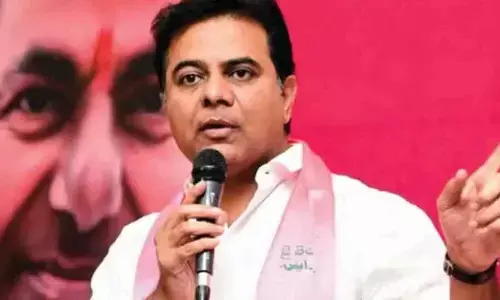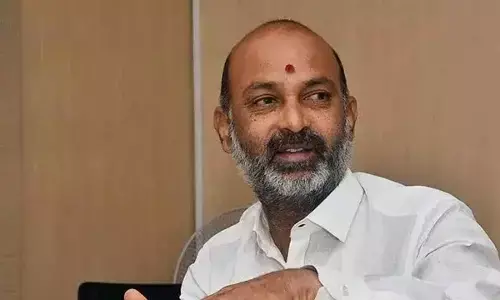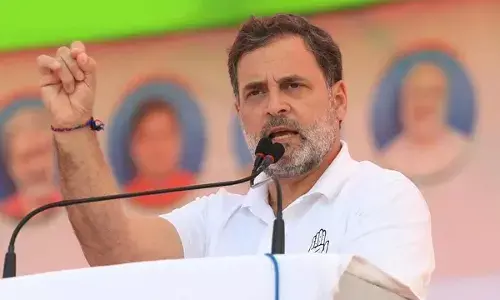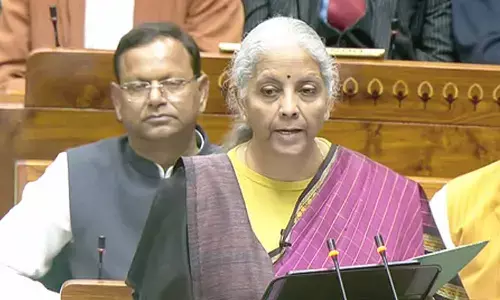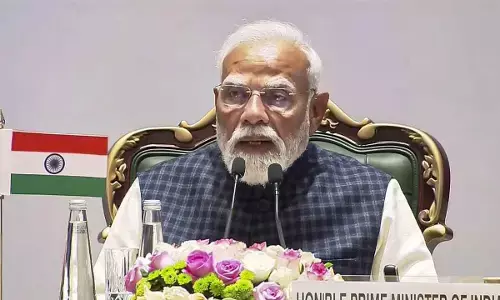India's rise as a global counsel
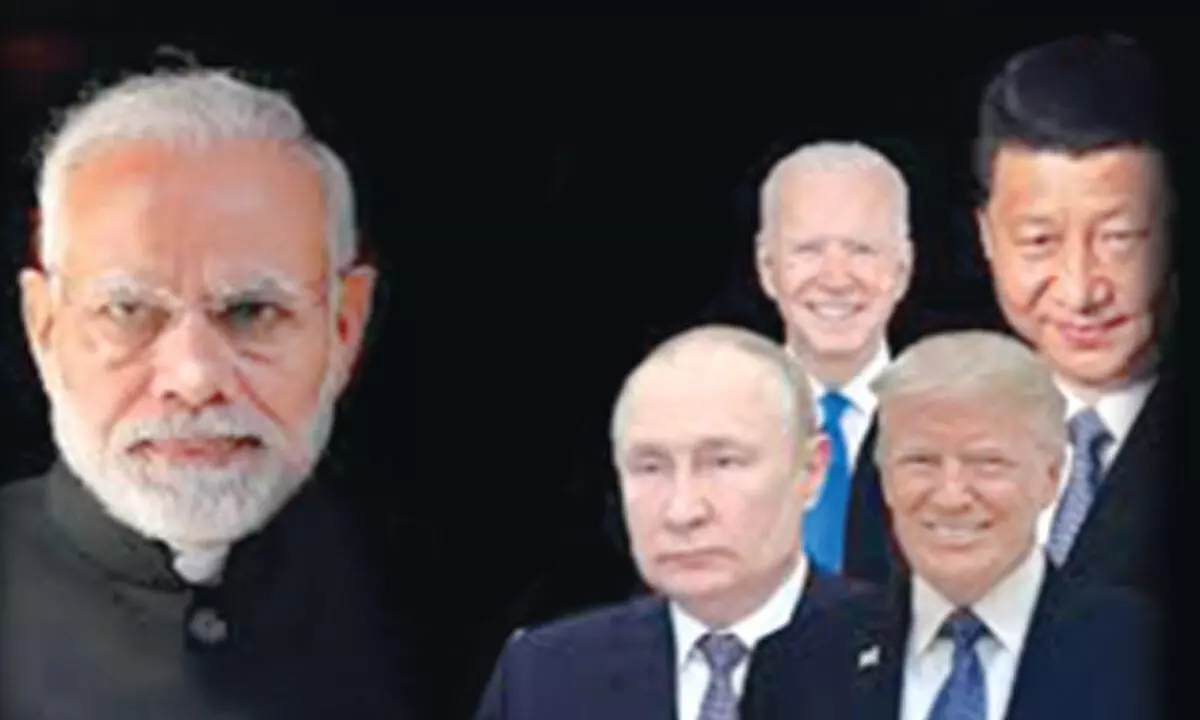
India’s rise as a global counsel
The post-Cold War world ironically witnessed the rise of a new global terror primarily targeting the US, from the same 'geographical pivot of history' called Afghanistan that had earlier caused the demise of USSR, the other superpower.
The post-Cold War world ironically witnessed the rise of a new global terror primarily targeting the US, from the same 'geographical pivot of history' called Afghanistan that had earlier caused the demise of USSR, the other superpower.
This in turn laid the turf for carried out by Al Qaeda that had worked in close collaboration with the Taliban in Afghanistan.
The 'war on terror' that followed 9/11, the trans-Atlantic attack on the Twin Towers, first in Afghanistan and then in Iraq, saw India firmly coming on board with the US in its offensive against the Islamic radicals and consistently supporting the US at all fora in the call for global action against Islamic extremists and radicals.
The US put up with the reinstallation of Taliban Emirate in Kabul in August 2021 on a flimsy assurance from Taliban that it will not permit Afghan territory to be used for another 9/11 type of terror act. India was left to deal largely on its own with the increased danger of cross-border terror from the Pak-Afghan belt in Kashmir and elsewhere and the added threat to national security arising from the Sino-Pak axis that entailed military liaison between the two hostile neighbours of India.
Russia's military operation against Ukraine added to the challenge for India, of steering its national strategy. Under Prime Minister Narendra Modi, however, this nation has successfully tackled the new demands on security and economic fronts facing the country – with consistency, clarity and a new-found political will – and enabled India to steadily emerge as a global power and in particular establish itself as an Asian giant.
The strategy that Prime Minister Modi formulated, with the able assistance of his NSA, revolved around a firm declaration that there will be no talks with Pakistan until the latter renounces use of terror as an instrument of state policy in respect of India, bilateral relations with all based on mutuality of security and economic interests, and special emphasis on India-US friendship as an expression of natural bonding between the two largest democracies of the world without prejudice to the valuable India-Russia relationship that has been built over years to serve, among other things, the need for India to have a dependable source of modern military equipment-
Russia, in fact, has been the biggest supplier of arms to India in recent years. Besides, India has proved its total commitment to economic development of all in the interest of world peace. What is remarkable about this national strategy is that it rests on Prime Minister Modi's personal equation with both US President Biden as well as Russian President Vladimir Putin. This has enabled India to play the role of a global counsel in the sensitive geopolitical situation created by the prolonged Ukraine-Russia conflict, in which the US and Europe have both got deeply involved in support of Ukraine.
It is in this context, Prime Minister Modi's participation in the Shanghai Cooperation Organisation (SCO) summit at Samarkand in Uzbekistan, where Iran joined in the group of Russia, China, India, Pakistan and the four CARs, established the stature of India as a world power and as a major influence on global geopolitics.
This happened since India kept Pakistan and China in their place, used the bilateral meeting between Putin and Modi to further strengthen their mutual ties while maintaining the stand that the Ukraine-Russia military conflict should end and peace negotiations should resume, pushing economic cooperation in the region on top of the agenda.
At the summit, Modi projected India as a great supporter of SCO, reminding the participants that the group accounted for 40 per cent of the world population and 30 per cent of the global GDP, and focused primarily on India's potential as a resurgent economy for contributing to the economic cooperation among the member countries.
Speaking of the food and energy security, he referred to the disruption of global supply chains due to the Covid pandemic as also the Ukraine-Russia military conflict and highlighted the need for establishing connectivity among the member nations through grant of transit facility – drawing attention indirectly to the impediment caused by Pakistan to the efforts of India to rush food supplies and humanitarian assistance to Afghanistan.
Modi also gave a call for enhancing food security by promoting production of millets following the example of India.
A great outcome of the SCO summit was the in-person bilateral meeting between Putin and Modi that further cemented Indo-Russian bonds. This happened even as Modi maintained that "this is not an era of war" and repeated his call for peace negotiations between Ukraine and Moscow to end the conflict since, according to him, the world favoured "democracy, diplomacy and dialogue."
Prime Minister Modi's stand on Ukraine-Russia conflict remains consistent with the view that concerns of both sides have to be addressed - it establishes India's wise counsel, retains the trust of the conflicting sides in India's Prime Minister and does not adversely affect Indo-US friendship.
The handling of Indo-Russian relations has a bearing on India's strategy of tackling a hostile China. India is prepared to deal with PLA on the borders, is actively engaging with Quad to check Chinese aggressive designs in the Indo-Pacific and thus safeguard Indian Ocean too.
India's approach to the Ukraine-Russia conflict helps to ensure that China-Russia bonds do not affect India's national security interests. India does not mind omission of any reference to the relevance of the application of UN Charter in the context of Ukraine-Russia conflict in the joint statement of the summit, since a direct negotiation between the two sides, possibly with the informal help from a mutually acceptable friend like India, would be better than a formal third-party intervention there.
Although India did not show any keenness for a bilateral meeting between China and India at Samarkand, President Xi for his own reasons publicly welcomed India as the host of next year's SCO summit. India has a lot to feel satisfied about the joint statement of the summit called Samarkand Declaration.
The statement advocated respect for the rights of people to independently and democratically choose political and socio-economic development and reaffirmed the principles of mutual respect for the sovereignty, independence and territorial integrity of states, non-interference in internal affairs and non-use of threat of force, as the basis for sustainable development of international relations.
Importantly for India, it held that the most important factor for improving and strengthening security and stability in the SCO region is the speedy settlement of the situation in Afghanistan by way of providing an inclusive government there and making it free of terrorism and drugs.
India has every reason to feel happy that its stand on both economic development of the world and international security was fully vindicated at the SCO summit.
(The writer is a former Director of Intelligence Bureau. The views expressed are personal)








